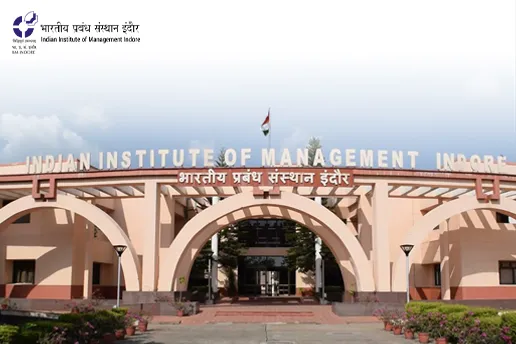Types of Investment Banking: Key Divisions & Career Opportunities Explained
Table of Contents

Investment banking is a critical part of the modern financial system. With its wide range of services, it helps corporations, institutions, and governments invest wisely, raise funds, and carry out complex financial transactions. At the same time, it also offers many lucrative career opportunities.
If you are interested, knowing the types of investment banking is essential. In this blog, you will find the main divisions of investment banking, their unique functions, and their importance.
Whether you are a student or a working professional, a career in investment banking will always seem lucrative. But before deciding, gather valuable insight into the opportunities and pathways available and then take a call that will transform your life.

*freepik.com
What is Investment Banking?
Investment banking helps individuals, companies, governments, etc., raise capital by providing them with financial advisory services. To be more precise, it bridges the gap between organizations or individuals who need money and those who want to invest.
Investment banks also help companies with their Initial Public Offerings (IPO). But what is an IPO? It is the time when a private company first sells its shares to the public, raising a huge amount of money for expansion. Investment bankers help these companies through this process and provide valuable advice regarding marketing shares to potential customers.
Investment banking services also help in mergers and acquisitions. Their job is to advise companies that want to buy or merge with other companies (acquisitions). They also ensure the deal is legally and financially sound.
Apart from these major roles, investment banks also help their clients utilize various types of securities. These may range from purchasing financial bonds to raising debt capital. These banks also offer solutions to various complex financial matters. In a word, investment banking is all about providing high-end financial expertise and services. Their customers are big organizations or wealthy individuals who are involved with significant financial transactions.
Types of Investment Banking
Investment banking does not end with investment-related jobs. It involves a wide range of functions, branching into different areas. Each of these branches serves a specific but important purpose in the world of finance. Their work does not mean only helping companies make money. It is also about guiding them while making complex financial decisions, going through big deals, and raising capital. So, their activities vary significantly. Here are some examples of the types of investment banking.
1. Corporate Finance / Mergers and Acquisitions (M&A)
People involved in this part of investment banking help companies to merge with other businesses or make important financial deals.
- They offer advice on how to structure deals.
- They help figure out how much a company is worth.
- They take responsibility to manage the entire process – communications, legal procedures, and final agreements.
This division of investment banks helps the companies to thrive and perform well in the years to come.
2. Capital Markets
Capital markets teams help companies raise money from investors. It has two main parts,
- Equity Capital Markets (ECM): Helps companies raise money by selling shares (stock) to the public or investors.
- Debt Capital Markets (DCM): Helps companies raise money by issuing bonds (borrowing from investors).
These professionals work closely with people involved in trading, banking, etc., and fetch the best deals for their clients. They also need to deal with lawyers.
3. Sales & Trading
This division connects buyers and sellers in the financial markets.
- Sales teams talk to clients like hedge funds or large investors and suggest where to invest.
- The trading team deals with buying and selling bonds or other financial products. They do it on behalf of their clients or the bank.
This job needs fast decision-making capability. So, these professionals must also have a deep knowledge of the market.
4. Research
Mainly, research analysts do this job. They study industries, companies, and market trends.
- Their detailed reports help investors to make decisions.
- Their work supports the sales and trading team and helps build client trust.
They often specialize in a sector, like technology or healthcare.
5. Asset Management / Wealth Management
Although these divisions are sometimes separate from core investment banking, they manage money for clients.
- Asset management deals with big clients like pension funds or institutions.
- Wealth management works with individuals, helping them grow their personal wealth.
Career Options Available in Various Types of Investment Banking Sectors
Due to the wide range of roles in investment banking, the career scope and prospects in this domain are massive. So, let’s have a detailed look at the main career options in investment banking. We will also dive into the job roles, required skills, and approximate salaries.
1. Investment Banking Analyst
Role: Entry Level.
Who it is for: Freshers with bachelor’s degrees from top universities. Finance, economics, or business backgrounds are preferred.
What they do:
- Build financial models in Excel.
- Research companies and industries.
- Help prepare pitch books and presentations.
- Support senior bankers with client deals.
Skills needed:
- Strong analytical and Excel skills.
- Very critical with attention to minute details.
- Ability to stretch work hours (approximately 80–100 per week).
Approximate Salary Range in INR:
- INR 17,40,000 to 19,92,000 PA
2. Investment Banking Associate
Role: Mid-level.
Who it is for: Working professionals who have a few years of experience. Fresh MBA graduates can also apply for this role.
What they do:
- Manage analysts and review their work.
- Lead parts of the deal process.
- Communicate with clients more often.
- Help structure deals and coordinate with legal/financial teams.
Skills needed:
- Leadership and project management.
- Strong communication.
- Deep financial knowledge.
Approximate Salary Range in INR:
- INR 18,00,000 to 30,00,000 PA
3. Vice President (VP)
Role: Senior.
Who it is for: Associates with 3 to 4 years of strong performance.
What they do:
- Lead deal execution.
- Present strategies and recommendations to clients.
- Maintain client relationships.
- Oversee associates and analysts.
Skills needed:
- Strong client-facing skills.
- Team leadership and multitasking.
- Deep understanding of financial markets.
Approximate Salary Range in INR:
- INR 36,00,000 to 50,00,000 PA
4. Director / Executive Director
What they do:
- Focus on winning new business.
- Lead high-level strategy and negotiations.
- Support Managing Directors in bringing in new clients.
Skills needed:
- Business development and networking.
- Confidence in high-stakes meetings.
- Leadership of large deal teams.
Approximate Salary Range in INR:
- INR 50,00,000 to 96,00,000 PA
5. Managing Director (MD)
Role: Top-level.
What they do:
- Bring in new business and large deals.
- Represent the firm to top clients and media.
- Manage teams across regions or sectors.
- Drive the bank’s overall profit.
Skills needed:
- Strong relationships in the industry.
- Salesmanship and leadership.
- Deep market and client insight.
Approximate Salary Range in INR:
- INR 1,00,00,000 1,20,00,000 PA
Other Specialized Roles in Investment Banking:
6. Sales and Trading Professionals
What they do:
- Buy and sell financial products like stocks, bonds, etc., for the bank or clients.
- Need to know all updates regarding the market trends.
- Work fast in high-pressure environments.
Approximate Salary Range in INR:
- INR 17,00,000 to 35,00,000 PA
7. Equity Research Analyst
What they do:
- Analyze public companies and write reports.
- Help investors decide whether to buy or sell.
- Forecast company earnings and track industry news.
Approximate Salary Range in INR:
- INR 4,00,000 to 22,00,000 PA
8. Capital Markets Professional (ECM/DCM)
What they do:
- Help companies raise money through stocks or bonds.
- Work between investment bankers and traders.
- Monitor market timing and investor demand.
Approximate Salary Range in INR:
- Analyst: INR 16,00,000 PA
- Director/MD: INR 60,00,000 PA
9. Risk Management and Compliance
What they do:
- Make sure the bank follows rules and laws.
- Analyze risk in deals and investments.
- Work closely with legal and operations teams.
Approximate Salary Range in INR:
- Analyst: INR 7,00,000 to 35,00,000 PA
- Director: INR 61,00,000 PA
10. Operations and Middle Office Role
What they do:
- Support deal-making from behind the scenes.
- Manage data, settle trades, and improve systems.
- Ensure accuracy and efficiency.
Approximate Salary Range in INR:
- INR 3,00,000 to 10,00,000 PA

*freepik.com
Conclusion
Are careers in investment banking still difficult? It must not, especially after knowing all its nuances. It is not just one job. To be precise, it involves a wide-ranging field consisting of several divisions. And each division plays a significant role in making the money move and helping the businesses to grow. One who is aiming to break into this competitive world must understand the various types of investment banking. Only knowing how to play with numbers is not enough here. Clear communication, strong work ethics, ability to perform well under pressure, etc., are essential to attain success. The path may be demanding, but it offers significant career growth and exciting challenges.
However, one cannot excel in this field just by dreaming. Upskilling oneself is extremely important. Only then can they overcome all hurdles. Online courses like the Professional Certificate Programme in Investment Banking at IIM Kozhikode can be beneficial. Accessible through Jaro Education, this course offers a pathway into this rather in-demand and prosperous career path. With a well-designed professional course like this, you get a chance to learn from the best in the business and also secure the status of an IIM alumnus.
Frequently Asked Questions
Is it necessary to have an MBA to become an investment banking professional?
Not necessarily. However, such a degree can enhance one’s prospects in the field. It imparts some specialized knowledge and skills, which the top investment banks prefer.
Are the work hours for an Investment Banker too long?
Working hours vary depending on the types of investment banking work. During peak times, the investment banker may have to work approximately 100 hours a week. On average, a workweek ranges between 60-80 hours.
Can a person without a finance degree break into investment banking?
Generally, a graduation degree is a must to enter this field. Commerce graduates are preferred. However, graduates from other streams related to finance can also take a chance. Apart from this, people with strong quantitative skills can opt for these jobs after going through relevant internships.
Can Investment Banking be a sensible career choice amongst various types of investment banking?
This career is not for anybody and everybody. A lot of patience and dedication are needed to become an investment banking professional. They have to perform under pressure and tight schedules. Their high income becomes possible only because they do not count the work hours.
Can a professional switch between various divisions of Investment Banking?
Yes. It is possible, but only if the professional fulfils the requirements.
What is the common misconception that is often heard regarding an investment banking activity, and what is the reality?
People commonly think that sales and trading are only about loud, chaotic trading floors and shouts for orders. However, in reality, modern sales and trading have changed a lot. Sophisticated technology and electronic platforms, clubbed with human interactions, have made this process much smoother and calmer.


















